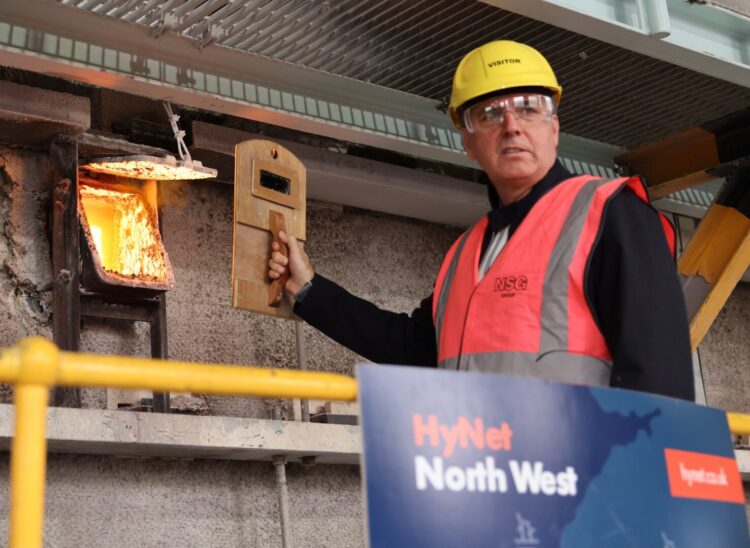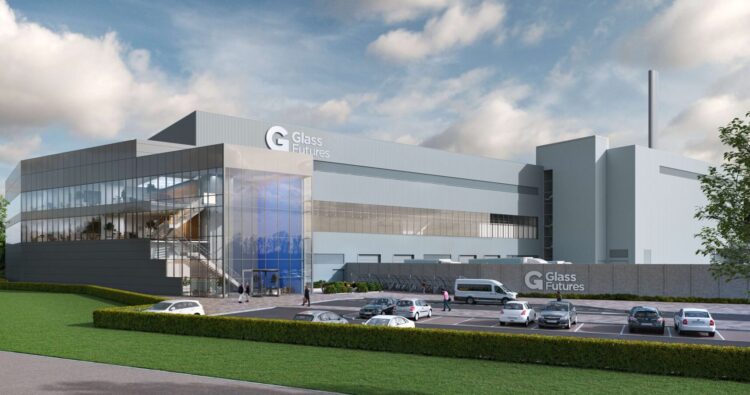Pilkington low-carbon pilot could transform industry
In the next few weeks, the results of a project to test low carbon fuels for glassmaking, which included Pilkington in St Helens, could revolutionise the industry. Tony McDonough reports

A pilot project in Merseyside to test low-carbon methods of making glass could transform the sustainability of the glassmaking industry.
Glass Futures is a £54m pioneering glass research facility being built in St Helens. Although still under construction its work has already started. Chief executive Richard Katz says a report will be published this autumn into a research project.
Under the lead of its combustion technical expert, Dr Palma González García, Glass Futures ran several pilot-scale tests at its combustion research facility in Rotherham. This looked into the efficiency of fuels in combustion, health and safety, economics and the environmental impact.
It investigated a range of fuels including pure hydrogen in the 350kW combustion test bed. The full results are being published by Glass Futures in conjunction with the Department of Business, Energy and Industrial Strategy (BEIS) this autumn.
Mr Katz said: “Over the last two years we’ve brought together partners from industry, the supply chain and academics to look at alternative low carbon fuels including hydrogen.
“The £7.1m Industrial Fuel Switching programme funded by BEIS saw us carry out trials to find suitable low carbon fuel alternatives to enable the decarbonisation of the glass sector and, potentially, the rest of the foundation industries.”
Glass futures also carried out the first large scale trials using 100 biofuel in two industrial glass plants – container and flat glass reducing the carbon footprint of the glass produced by between 80-90%. The organisation recently offered a showcase of its work at both the Labour and Conservative party conferences.


Glass Futures will create 80 new jobs in St Helens, a town that has been associated with glassmaking for more than 200 years. In December 2021, site owner and developer Network Space Developments (NSD) appointed building contractor Bower & Kirkland to deliver the building at Saints Retail Park.
In February a groundbreaking ceremony took place on the 165,000 sq ft global glass research and innovation facility. It is expected to be completed in January 2023, ready for internal fit-out.
Liverpool City Region Combined Authority is investing £9m into the project. A further £15m is coming from the Government’s UK Research and Innovation fund. Glass sector companies will contribute a further £20m in resource, time and equipment.
In August 2020, as part of the HyNet North West hydrogen project, Pilkington achieved a global first by firing 100% hydrogen in part of its furnace. This demonstrated that the full furnace could be run on the hydrogen blend, without compromising on quality standards or operational performance.
St Helens has long been associated with glassmaking. In 1773, the British Caste Plate Glass Company was established at Ravenhead, now part of the town. In 1826 St Helens Crown Glass Company was founded by the Pilkington and Greenhall families.
In 1845 the name of the business was changed to Pilkington Brothers and the Pilkington name became famous across the world for glassmaking excellence. In June 2006, Japanese glassmaker Nippon Sheet Glass (NSG) completed a £1.8bn takeover of the firm.

